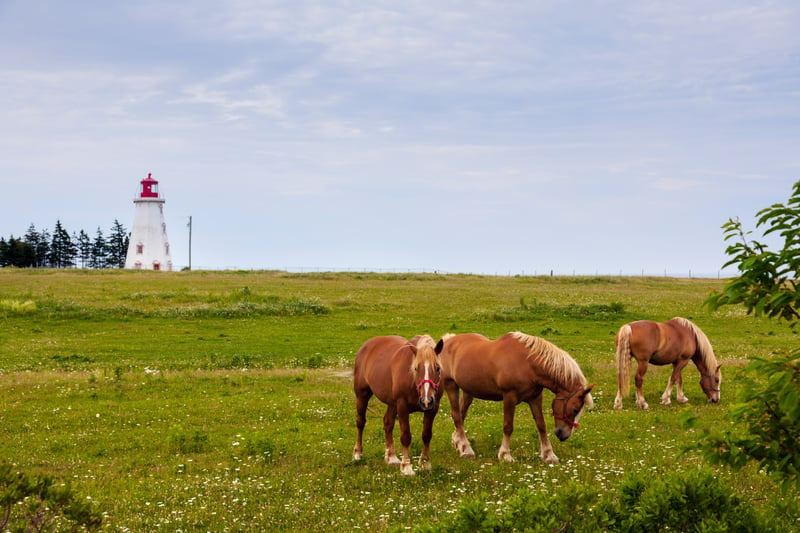
If you’ve ever wondered what it takes to dream up a product and see it used for the benefit of animal health, you’re in luck!
Kansas State University Olathe offers an animal health regulatory affairs certificate that is designed to ensure learners have the knowledge they need to succeed from concept to production and beyond as it relates to regulatory compliance.
The animal health industry is booming. New and innovative products are being designed and released each year, each of which must meet requirements set forth by regulating government bodies, such as the U.S. Food and Drug Administration, U.S. Department of Agriculture and U.S. Environmental Protection Agency. With the animal health regulatory affairs graduate certificate program, students will learn what it takes to see a product come to life in a way that is safe and effective for animal use.
Learners who want to pursue careers in animal health have a variety of academic options when they choose K-State Olathe. Students can choose to pursue a master’s degree in applied biosciences or veterinary biomedical science if they’re looking for in-depth programs that will prepare them to enter the animal health industry or if they want to prepare further for veterinary school.
In addition to the master’s degree programs, learners also have another, faster option: the animal health regulatory affairs graduate certificate.
This certificate offers learners the opportunity to dive deep into what they’ll need to know in order to pursue a successful animal health regulatory affairs career. One of the benefits of this certificate option is that it directly plugs into the master’s degrees in either applied biosciences or veterinary biomedical science at K-State Olathe, which means learners who complete the certificate program and want to pursue a master’s degree will be able to do so. All of their credits will directly translate to either degree program. We sat down with Paige Adams, D.V.M., Ph.D., to talk more about the animal health regulatory affairs graduate certificate — and which learners can benefit from the program.
Q: What is the animal health regulatory affairs graduate certificate?
A: This is a 15-credit graduate level certificate that has been developed in conjunction with the animal health industry. We worked closely with industry professionals while designing courses for this program, and they helped us develop our plan. Those professionals were instrumental in making sure the course content was applicable and closely tied to what experts work with on a daily basis.
Q: What kind of student should pursue a career in animal health regulatory affairs?
A: This certificate can benefit a number of different students with a bachelor’s degree in a variety of fields, since regulatory affairs professionals have varied backgrounds, with many trained in the biosciences, manufacturing or technical writing. For recent graduates who want to get into the animal health industry, it’s a great way to understand what’s required to get those products through. One of the biggest reasons to consider this certificate is that students may already be working on animal health products but may not completely understand each aspect of the regulatory process.
This certificate can help open their eyes to other parts of their company. It’ll help answer questions like, “What are the responsibilities of the company’s manufacturing division when it comes to compliance?” and “Who is responsible for overseeing regulatory compliance and communicating with different governmental agencies?”
Additionally, this certificate is designed to ensure that students will develop an understanding of each agency that animal health companies must work with, including the FDA, USDA and EPA. Each of these agencies is unique in their regulatory requirements with no overlap in processes, but our program provides a well-rounded education on the regulatory expectations of each agency.
We also bring in subject matter experts to help deliver the information to our students. This provides an even deeper understanding for our learners and the ability to converse about regulations.
Students in the animal health regulatory affairs program also will study the use of preclinical data generated before licensure, as well as post-licensure procedures and strategies. They’ll study statistics, too. This is important because a lot of the preclinical studies require statistical analyses and having that background will assist in effective communication with industry statisticians.
Q: What makes our program unique?
A: There are not too many animal health regulatory affairs training programs across the U.S.
Most existing educational programs are geared more toward human health product regulations, but very few focus on animal health products specifically.
K-State Olathe is centrally located in the Animal Health Corridor, so we have quite a few animal health industries that are located near our campus. The corridor is situated between Manhattan, Kansas, and Columbia, Missouri, where there is the single highest concentration of animal health interests in the world. We’re trying to fulfil those animal health regulation requirements by teaching our students what regulations are required and how to stay in compliance post-licensure.
We also have graduate degree programs here at the Olathe campus, so students can work toward their master’s degree while they move through the animal health regulatory affairs graduate certificate program.
Each of the master’s degrees is 30 credits, but students can use the 15 credits from their animal health regulatory affairs certificate toward either of our master’s degrees in applied biosciences or veterinary biomedical science
The other benefit of our program is that we make room for students who need time to decide what they’d like to do. Some students are not quite ready to declare a major – and that’s OK. They can enroll as non-degree seeking and take up to nine credits before declaring a major program of study.
Q: How do we work with industry professionals to meet their talent needs?
A: We have an animal health industry advisory board that has been incredibly supportive in providing guidance, creating ideas and getting the word out about our program offerings. Our board sees the value in providing education for their employees. We meet with these industry professionals on a regular basis and also invite them to serve as either guest lecturers or panelists for our courses. This means that students are learning directly from individuals who have an expertise in each specific topic. In fact, in one of our classes, we have an industry panel where we bring in representatives who can provide information and their perspectives as regulatory affairs specialists. As part of the panel, students can ask any kind of questions they have, including career advice. This provides students with a chance to ask professionals about their personal career pathways and their history of how they got to certain positions. This is especially helpful for students who are just starting their careers in animal health or who have an interest in pursuing regulatory affairs. One of our biggest goals is to provide guidance and direction to our students. We want to provide them with the most informed advice and help them understand their career options in animal health, as well as how to achieve their career goals.
Q: What drew you to animal health?
A: Some individuals enter the animal health field based on different reasons or influences. For me, my dad was a veterinarian as well and a Ph.D. pathologist who was highly influential when I decided to pursue a career in animal health. He provided me with great insight into this field as well as an appreciation for the tremendous potential veterinarians have in improving the health and well-being of animals. He is still a very active faculty member in the College of Veterinary Medicine at Texas A&M and continues to be a major influence on me. I grew up showing horses and sheep in 4-H, and this also supported my interest in veterinary medicine. Reading James Herriot books as a kid also had an influence on me, where I appreciated the importance of the human-animal bond and the important role of veterinarians in maintaining this bond.
Following graduation from Texas A&M College of Veterinary Medicine, I followed my interests in practicing large animal medicine and surgery for several years before deciding to pursue a Ph.D. in immunology. As my career continued to evolve in different areas in animal health, it allowed me to use my knowledge and skills to relate to different One Health challenges that involve animals, humans and the environment as well as provided an example for my students that there are no limits when pursuing a career in animal health.
You just must be open to possibilities and opportunities, learning along the way, that will eventually build toward a very satisfying career in animal health if this is where your interest lies. For me, it’s been a wonderful journey in animal health that continues to motivate me to this day!
Paige Adams, D.V.M., Ph.D., is a teaching associate professor at Kansas State University's Olathe campus, where she has served this campus as a faculty member since August 2013. You can learn more about her on our website.
This program is supported with funding provided by the Johnson County Education Research Triangle.
Animal health: is it right for you?
If you’d like to learn more about the animal health regulatory affairs graduate certificate at K-State Olathe, visit our website for more information or to speak with an admissions counselor.


